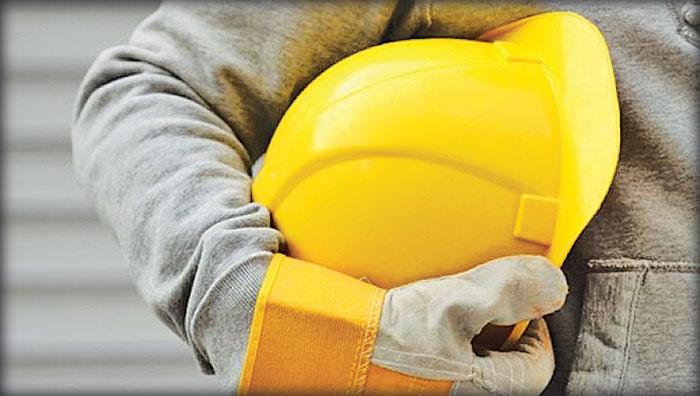
Is it safety first or target first in Sri Lanka?
The construction industry in Sri Lanka has developed significantly in recent years and has transformed into a major contributor to the national economy.
Globally, this industry has been identified as one of the most vulnerable among all industries, with the highest rate of accidents including deaths and disabling injuries. Around the globe, every 15 seconds, a worker dies from a work-related accident or disease.
The following table gives some of the fatal accidents that occurred in the construction industry in Sri Lanka during the past five years . (The actual amount may be more than this).
Year No. of Fatal Accidents
2011 60
2012 80
2013 71
2014 68
2015 76
To mitigate major accidents up to zero or minimum level, employees and employers should seriously consider the following:
l Maintain the right mindfulness during work.
l Forget minor difficulties which occur when using personal protective equipment.
l Stop horseplay during work.
l Spot the hazard before it spots you.
l Not use mobile phones during work. Inform the immediate supervisor of all dangerous situations.
l Follow all safety instructions, rules and regulations given by the employer.
l Know your rights and responsibilities.
Things that should be considered by employers:
1. Employees who follow safety rules should be encouraged/motivated.
2. Officers who educate/handle safety matters should be encouraged/motivated as the situation regarding the safety is very unpopular in Sri Lanka.
3. Give priority to safety matters by considering the maxim ‘Safety First’.
4. Attend to complains regarding safety matters promptly.
5. Give priority to safety matters rather than the target.
6. Educate all field personnel regularly on safety matters.
7. Staff for safety matters should be selected by considering the interest of safety subjects.
8. Provide dedicated staff and other required facilities for safety matters.
9. Record all accidents and near misses and educate the relevant personnel regarding those issues.
10. Clearly identify the hardness and practical difficulties of the work done by field employees.
11. Accident investigations should be conducted to find out the root causes and not to pin blame on the guilty party. Employers should give solutions to eradicate root causes and not highlight the direct causes. By following this, employers can prevent the recurrence of the same accidents.
12. Employers should know that a delay in justice is a denial of justice.
13. Authority should not be used as a weapon to punish, isolate, take revenge or transfer the employees in an unjust way.
14. Authority should be used as a control tool to make better employees.
15. A method should be introduced to obtain true feedback from all employees.
16. Written complaints/requests by employees should be answered whether it is positive or negative.
17. There should be a true response to each and every complaint/request (oral or written) by employees.
18. Employees should be treated emphatically not sympathetically.
19. Benefits employees are entitled to should be granted without harassing, embarrassing, or delaying them.
20. Benefits received by officers should not be kept as ornaments, but should be used for the betterment of the country.
21. Every effort should be made to create a stress free/congruent working environment for field personnel.
22. Every person in the organisation should be truly dedicated with regard to safety.
23. Safety committees should be set up. This should include all levels of employees, specially field employees.
24. The bodies and minds of employees are vital to improve health, safety and productivity. Hence, employers should act/speak so as to protect the minds of employees.
25. Staff in the safety sections should be given opportunities to update their knowledge through regular training programs, seminars, workshops, etc. They should also be granted opportunities to enhance their knowledge on safety matters beyond the specific subject areas.
26. Some employers verbally abuse employees using their official authority. They have no clear idea about the condition of the minds of employees. Today, in Sri Lanka, most of the non-communicable diseases are due to the long-term stressful conditions under which people work, and hence, employers should behave/act to protect the minds of employees.
27. Most employers are not bothered about the work load, knowledge, and skill of the employees. Superiors simply pass anything which has come from above to subordinates to please the relevant officials.
Due to this, employees have to face stressful conditions and their health deteriorates gradually. Finally, the cost of safety should not be considered as an expense, but as an investment for the future. Working without safety is the path to the tomb.
The symbol for the mind is the butterfly.
We must carefully handle the minds of the employees to protect their health and create a prosperous country.
- An industry release
